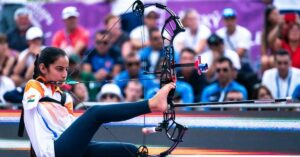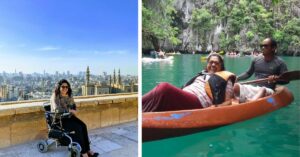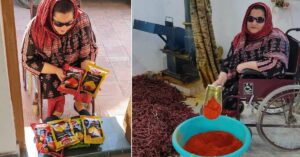250 People with Autism, Down Syndrome Have Jobs Today, Thanks to 3 Friends
Three Mumbai friends launched Mann Centre for Individuals with Special Needs with an aim to provide age-appropriate jobs to hundreds of people with intellectual disabilities.
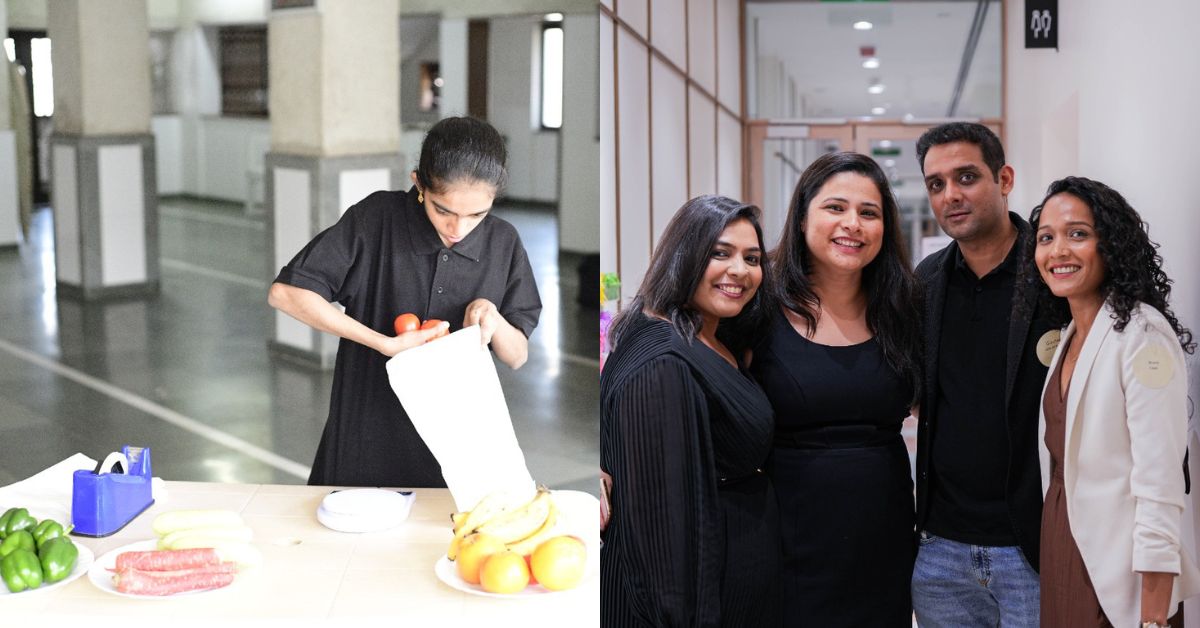
In 2008, three friends began a weekend hobby class aimed at people living with intellectual disabilities to integrate into the world. Today, this has turned into a full-fledged training centre for people with learning disabilities, Down Syndrome, and autism.
Here, they provide these people with training in liveability and equip them with skills like functional academics, social skills, physical wellness, daily activity training, and extracurriculars. The other area of their training is workability, where they train them to make them job-ready and find age-appropriate employment. Around 250 people with disabilities are today working at restaurants, corporates, supermarkets, and other hospitality sectors.
Launched in 2011, Mann Center For Individuals With Special Needs is helmed by three friends and special educators Beverly Louis, Geetanjali Gaur and Dilshad Mehershahi, as well as a fourth co-founder Gautam Lalwani, who manages the finances.
So far, they have trained more than 500 people.
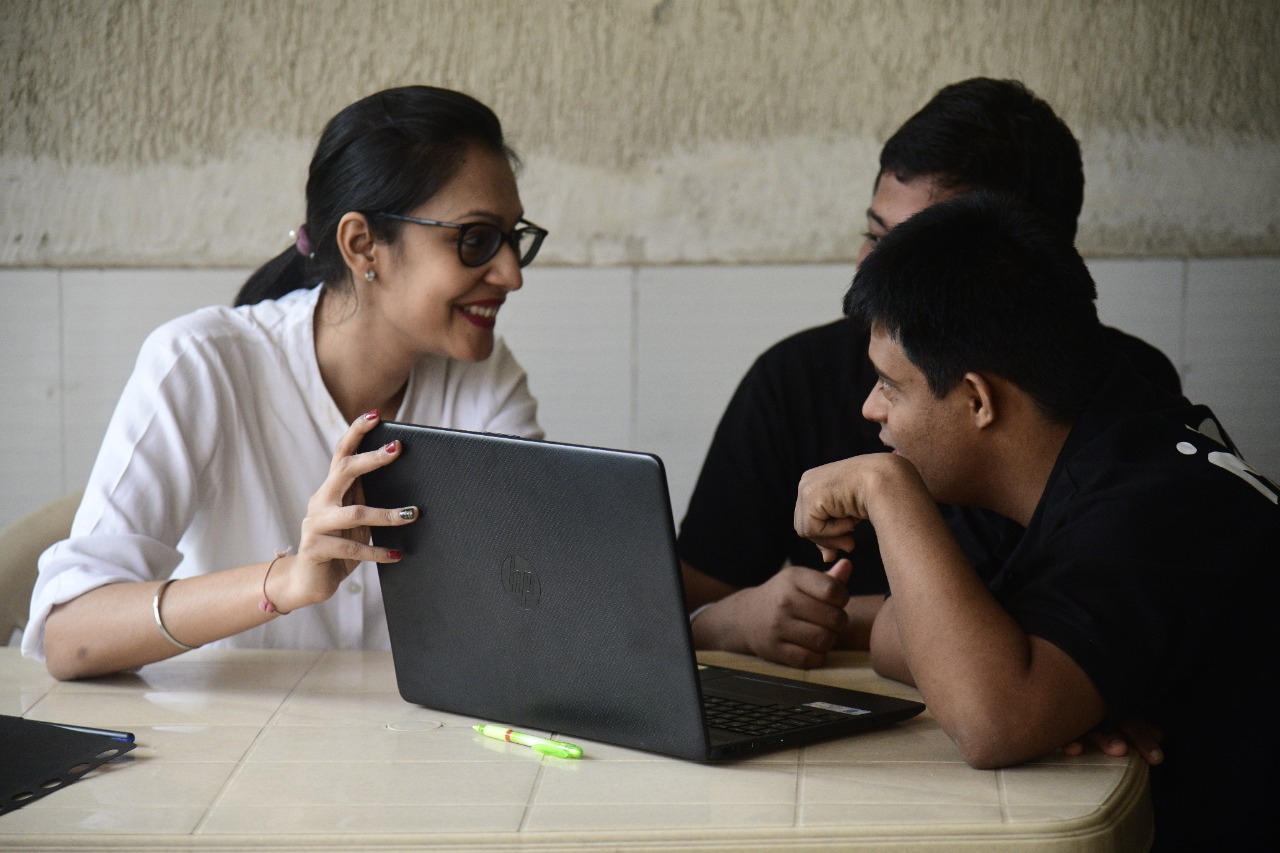
In conversation with The Better India, Beverly explains, “The three of us met at a training centre for special educators in 2004. What always bothered us was that people with disabilities were always sheltered and trained to make certain kinds of products, like agarbattis etc. While they were all similar in age to us, their life experiences were completely different. They were not provided age-appropriate activities.”
According to a Ministry of Statistics report, nearly 64 per cent of persons with disabilities in India don’t have jobs. The report states that of the 26.9 million persons with disabilities in the country, only 36 per cent are employed.
A stellar transformation
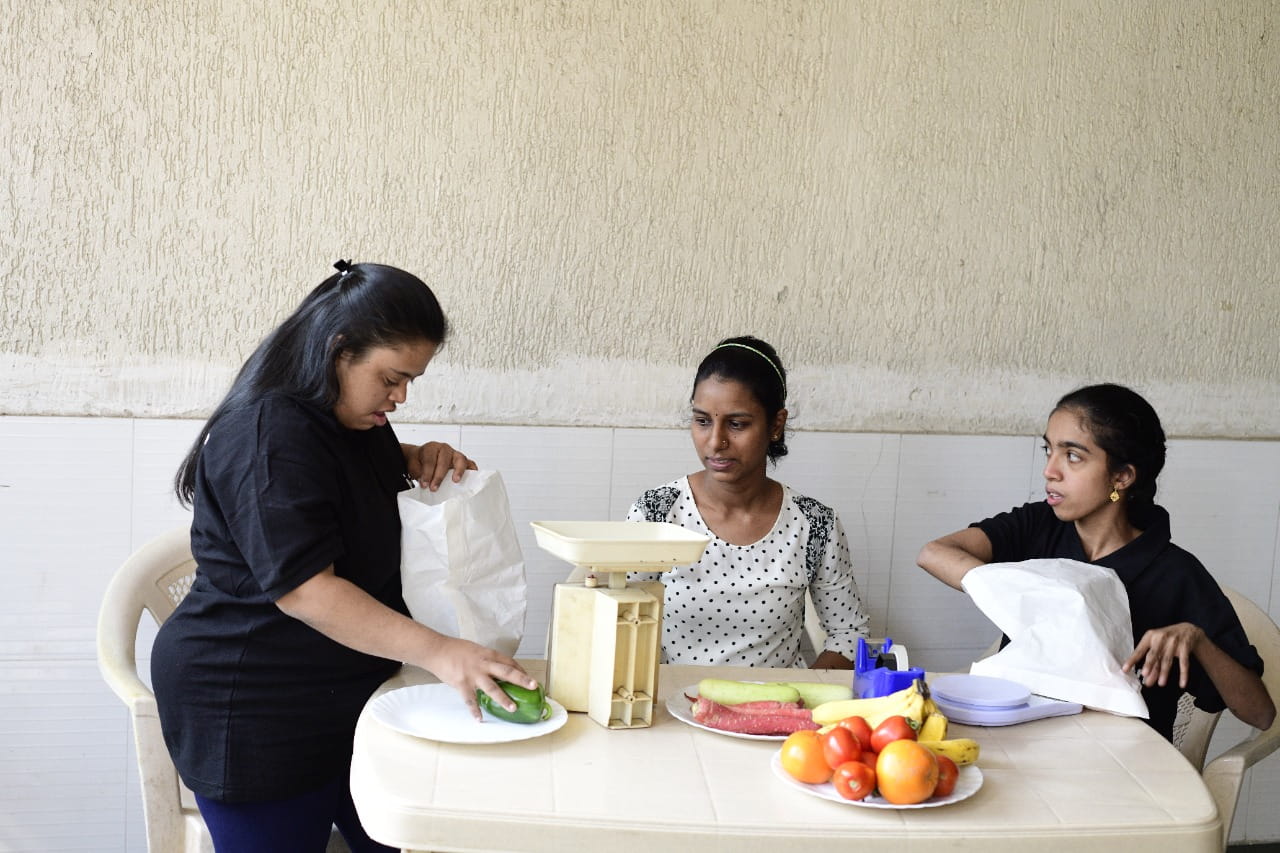
Unhappy with the vast difference in training, opportunities and life experiences of people with disabilities, they decided to do something to bridge the gap.
“We started asking the people we met if they had gone to watch a movie, or for shopping. Most of them hadn’t. We then started taking them to watch movies, to a club, to a restaurant etc. We also took them to Goa on a holiday by train. The difference in their demeanour was astounding,” adds Beverly.
They realised that this exposure to society made them communicative and receptive. Small steps made a huge difference in the lives of those youngsters.
“When they understood that they were valued, they progressed in skills, communication and self-care,” she adds.
They also realised that there were no training centres for people who came from poor families like children of house-helps, taxi drivers, and auto drivers. So the three friends started a weekend hobby class from 2008-2010, during which they were pursuing their Master’s degrees in Special Education.
“The progress reports from their parents were phenomenal. As many had to work full-time, they didn’t have time to spend with their children. Seeing the change in our students with leisure activities two days in a week, we knew we had to pursue this full-time. We saw that they were able to communicate better, learnt the concept of time, and were able to be self-sufficient. For their parents, this was a big bonus, as their children were able to do daily activities like getting ready, eating, and taking care of themselves,” adds Beverly.
Mann was started in 2011 with 25 beneficiaries in Santacruz, Mumbai.
The space was given to them by their trustee.
While they initially started by providing training, an incident in 2014 made them stand up and take notice.
“From 25 beneficiaries in 2011, we gradually grew to 50 the next year, then 75, and so on. But we were just three trainers and found it difficult. In 2013-14 we observed that four of our beneficiaries had started imitating us as trainers. They grasped all our skills without being trained to be teachers,” says Dilshad.
So the founders decided to give an opportunity to their four students to become assistant teachers. Their work ethic and joy at being employed made the founders create a full-fledged training module around employment.
“When they received their first cheque, they were overjoyed. The reaction of their parents too completely transformed us. They were appreciated by their parents for the first time. So we developed an intensive curriculum to make them employable,” says Beverly.
‘Their presence is precious to us’
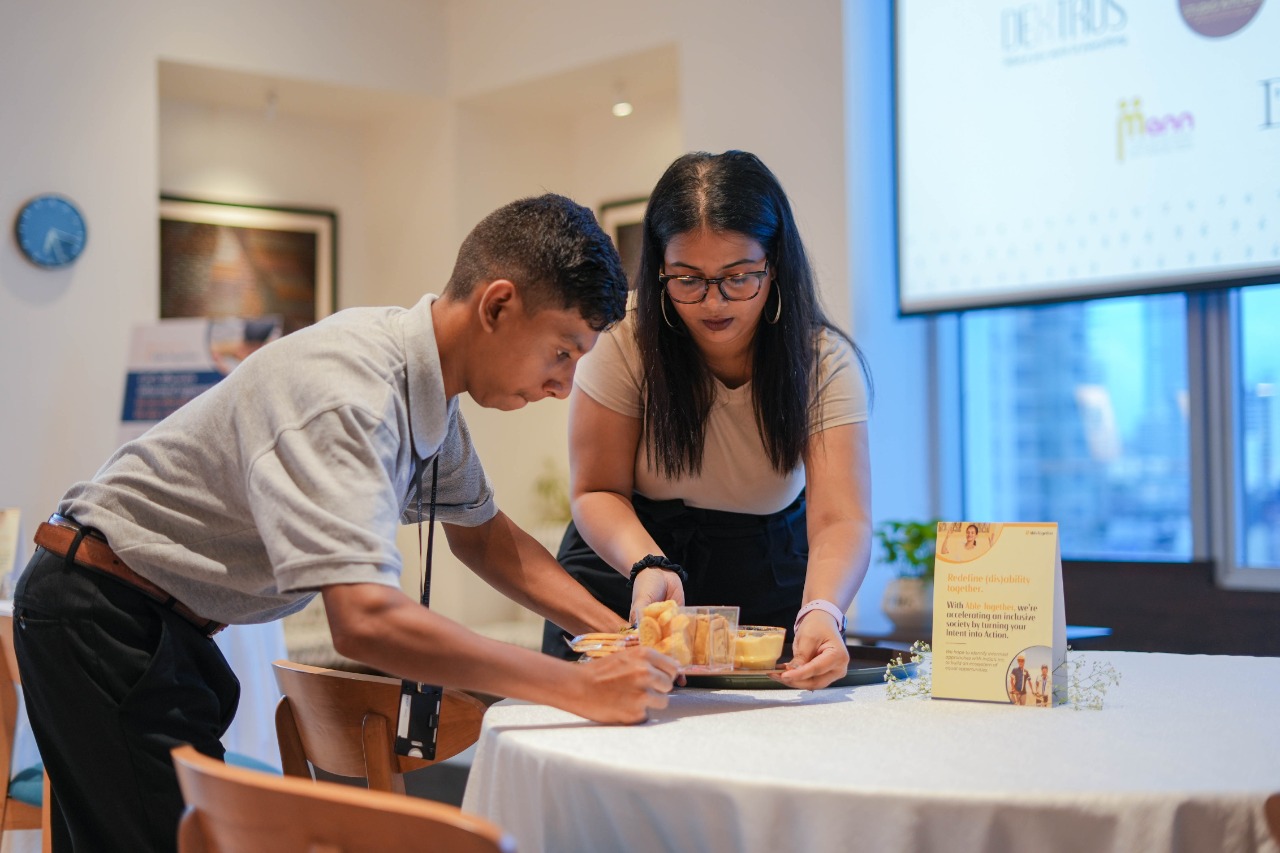
The training takes anywhere between one to three years, depending on the disability of the student and how they pick up. While they trained their students, convincing people to employ them was a huge challenge.
“Most people just shunned us. They questioned how a person with an intellectual disability can work. Finally, Cafe Zoe in Mumbai gave us our first opportunity. After that, thanks to their recommendations and word of mouth, our students have been employed in companies like Microsoft, JW Marriott, Inox, Olive etc,” says Beverly.
“In food & beverages, they work as kitchen assistants or in customer service roles. In offices, they do data entry or pantry work. In multiplexes like Inox, they do usher, kitchen work or at the box office. We train them depending on the industry,” says Dilshad.
The response from employers has been tremendous, according to the founders. “They always come back to hire more of our students,” says Beverly proudly.
Sohan Shah, an employer of a Mann student, explains, “Hazique, who trained and graduated from Mann, has been working with us for almost two years now. From just helping our housekeeping person initially, he now manages the kitchen almost single-handedly when our housekeeping person is absent. This is awesome growth, and more importantly, he is a constant source of positive energy and enthusiasm for our team. His presence is now precious to us.”
Since employers from cities other than Mumbai wanted to hire their students, Mann has now started training centres/schools in other cities Bengaluru, Pune, Dehradun, Chennai, and Kashmir to make their students employable. This was also done thanks to COVID.
“During the lockdowns, we couldn’t conduct our physical classes. We also wanted to ensure that our students don’t lose their progress. So we digitised our entire curriculum and put it on an open-source platform called Zoho. This helped our students and their parents continue their education,” adds Beverly.
Using this platform, the curriculum is shared with other organisations imparting training to children with special needs. Beverly says that they have trained 14 organisations like the Prem Nidhi Special School, Muni Seva Ashram, and Voluntary Medicare Society so far using the Mann curriculum.
While Mann continues to provide employment training to many, there are some students who may not be able to work in mainstream roles due to the extent of their disability. To provide employment to such students, they started Karmann.
“Some of our students who are on the moderate to severe end of the spectrum can’t travel on their own, or work in companies. To help them, we started Karmann. We train them in crafts like appliqué, patchwork, embroidery, and quilting. They make home decor and lifestyle products,” says Dilshad.
Karmann has twenty employees currently and more students are being trained to work there. One of the main investors in Karmann is Sudhir Shenoy, senior vice president at EQUATE.
Meanwhile, the founders hope that more people come forward to employ people with intellectual disabilities. “We want to impact 5,000 students per year. Our long-term goal is to have a setup where they can stay as a community, perhaps an apartment complex,” says Beverly.
You can donate to Mann here: https://rzp.io/l/mann.
Edited by Divya Sethu
Sources
‘News By Numbers: Only 36% of India’s 26 million persons with disabilities are employed’ by Rucha Sharma for Forbes India, Published on 10 June, 2021
If you found our stories insightful, informative, or even just enjoyable, we invite you to consider making a voluntary payment to support the work we do at The Better India. Your contribution helps us continue producing quality content that educates, inspires, and drives positive change.
Choose one of the payment options below for your contribution-
By paying for the stories you value, you directly contribute to sustaining our efforts focused on making a difference in the world. Together, let’s ensure that impactful stories continue to be told and shared, enriching lives and communities alike.
Thank you for your support. Here are some frequently asked questions you might find helpful to know why you are contributing?


This story made me
-
97
-
121
-
89
-
167




